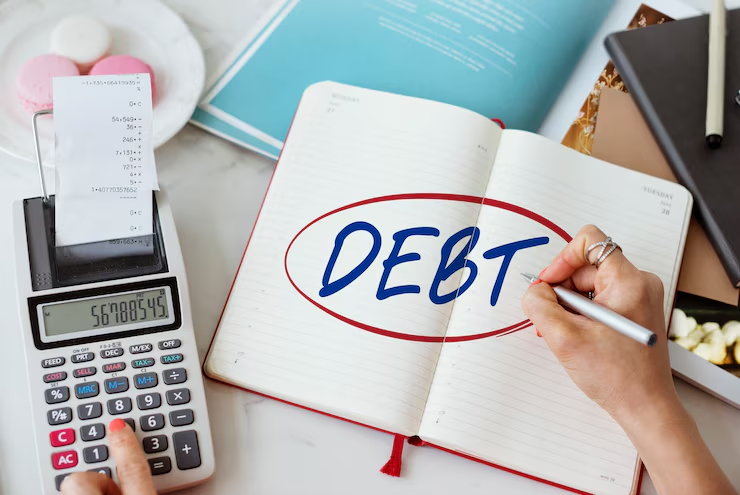
You’re not the only one who feels overburdened by debt. Whether it’s personal loans, credit cards, or student loans, debt can feel like a burden that prevents you from living life to the fullest. The good news is that it may be easier than you think to pay off debt and become financially independent.
We’ll take you through practical, doable measures in this book to help you pay off your debt and begin creating a better financial future.
Why It’s Important to Pay Off Debt
Debt affects more than just your bank account; it also affects your relationships, stress levels, and capacity to save for retirement or purchase a home. Regaining financial control and the ability to live your life as you see fit are two benefits of paying off debt.
Step 1: Recognize Your Debt Clearly
You must understand the whole situation before you can begin to address your debt.
- Create a debt list by determining who you owe.
- How much is the entire balance?
- What is the rate of interest?
- What is the minimum amount due each month?
You’ll be able to prioritize and plan more efficiently as a result.
Step 2: Select a Personal Debt Payoff Plan
No one-size-fits-all approach exists. Select the one that best fits your financial habits and philosophy.
The Snowball Method of Debt
- Make minimal payments on the remaining balances while paying off the smallest first.
- Roll that payment over to the next smallest each time you pay one off.
- Excellent for increasing motivation and momentum.
The Avalanche Method for Debt
- Prioritize the debt that has the greatest interest rate.
- Your total interest payment will be lower.
- Best if you’re patient and a numbers person.
- Both are effective; pick the one that sustains you!
Step 3: Establish a Spending Plan You Can Follow
You must manage your spending if you wish to pay off your debt. A flexible, realistic budget is essential.
- Apply the 50/30/20 Rule, allocating 50% of your money to necessities.
- 30% for desires
- 20% for savings and debt repayment
The percentages can be changed to meet your objectives, such as increasing your debt repayment when you’re in payout mode.
Step 4: Reduce Expenses Without Sensing Deprivation
You don’t have to give up all of your favorite things. Simply spend less.
- Terminate any subscriptions that aren’t being used.
- Prepare extra food at home.
- Use a list while you shop.
- Make use of rewards and cashback apps.
- Use coupons and keep an eye out for sales.
Saving even a small amount will help you pay off your debt more quickly.
Step 5: Increase Your Income to Accelerate Your Development
Saving money isn’t always enough. Look for ways to get extra money and use it directly to pay off debt if you can.
- Simple side jobs include working online as a freelance writer, designer, or marketer.
- Sell whatever you don’t need around the house.
- Provide services including dog walking, babysitting, and tutoring.
- Applications for ridesharing or drive-for-delivery
- A few hundred bucks more every month can have a big impact.
Step 6: Monitor Your Progress and Remain Consistent
Paying off debt requires time. To keep yourself motivated, acknowledge your little victories along the road.
Use a Debt Tracker: Keeping track of your balances, whether via an app or a basic spreadsheet, allows you to monitor your progress and maintain focus on your objective.
Step 7: Create an Emergency Fund to Prevent Debt
The last thing you want is to get into debt again when life throws you a curveball once you’ve started to make progress.
- Aim for $500 to $1,000 to start modest.
- Eventually, increase it to three to six months’ worth of costs.
- Don’t use it for vacations or shopping; just for actual emergencies.
Concluding Remarks: The Road to Financial Independence Begins Now
Debt repayment is difficult, but it is completely doable. You may escape the debt cycle and take steps toward the financial future you deserve by creating a clear strategy, sticking to it, and changing your habits.
Recall that wealth is not a prerequisite for financial freedom. It’s about control over your finances, choices, and peace of mind.

